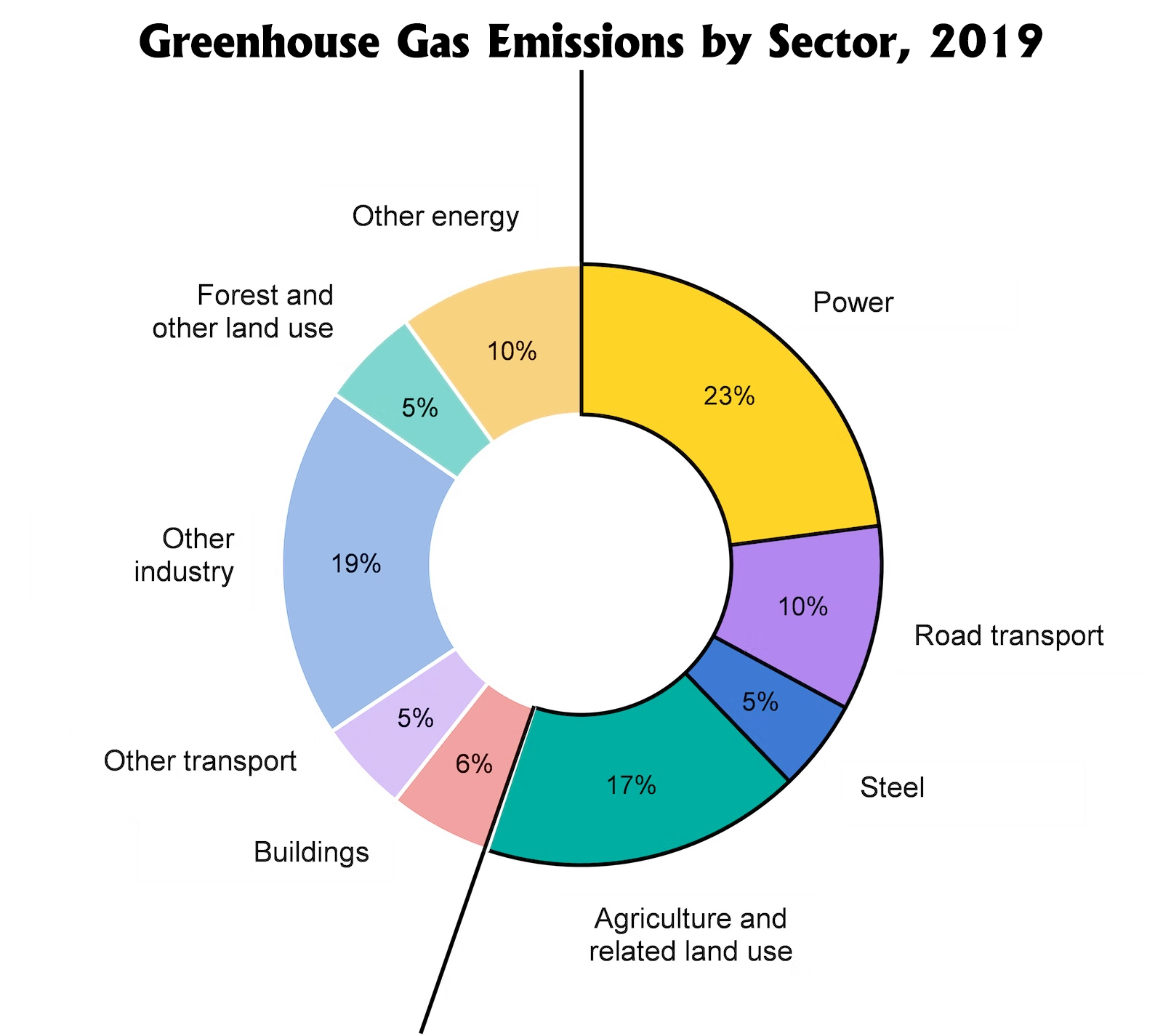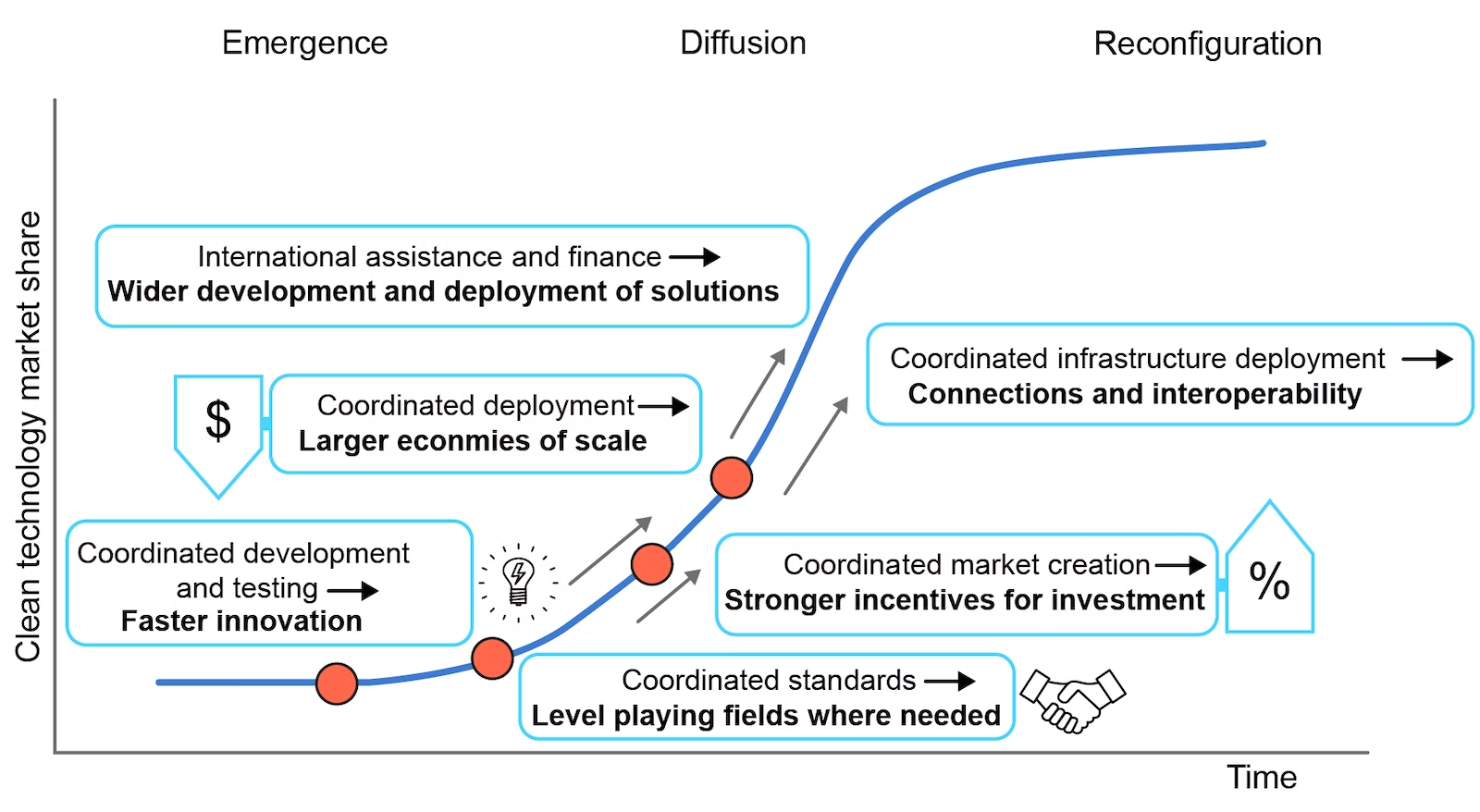Biodiversity & Environment
Breakthrough Agenda Report 2022
- 23 Sep 2022
- 5 min read
For Prelims: IEA, IRENA, Climate Change, COP26, Paris Agreement
For Mains: Breakthrough Agenda Report 2022 and its Recommendations
Why in News?
Recently, The Breakthrough Agenda Report 2022 was released by the International Energy Agency (IEA), the International Renewable Energy Agency (IRENA) and the UN Climate Change High-Level Champions, focusing on international collaboration to drive faster reductions in greenhouse gas emissions.
What are the Key Points of the Report?
- About:
- It assesses progress on reducing emissions in five key sectors – power, hydrogen, road transport, steel and agriculture.
- It is a first-of-its-kind annual progress report, requested by world leaders at the UN Climate Change Conference COP26 in November 2021 as part of the launch of the Breakthrough Agenda.
- The Breakthrough Agenda currently covers more than two-thirds of the global economy, with endorsement from 45 world leaders, including those of the G7, China and India.
- Findings:
- There is an increase in practical international cooperation in recent years, and progress in deploying the technologies needed, including a forecast increase in global renewable capacity of 8% in 2022 – pushing through the 300GW mark for the first time and equivalent to powering approximately 225 million homes.
- The five sectors analyzed in the report together account for nearly 60% of global greenhouse gas (GHG) emissions, and may deliver the bulk of the emission reductions needed by 2030 in a pathway that would make a significant contribution to limiting global warming to a maximum of 1.5°C, in line with the Paris Agreement goals.

- World is in the midst of the first truly global energy crisis, with devastating knock-on consequences across the world economy, especially in developing countries.
- The energy crisis has emerged in oil, gas and electricity markets and aggravated by Pandemic, Oil Prices and Russia-Ukraine conflict.
- The energy and climate crisis has exposed the weaknesses and vulnerabilities of a system heavily reliant on fuels of the 20th century.
- Recommendations:
- Demonstrate and test flexible low-carbon power systems to expand the range of solutions and increase the share of variable renewables
- Create new cross-border supergrids this decade to increase trade in low-carbon power, reduce emissions, improve energy security and enhance system flexibility
- Set up new international centres of expertise to channel finance and technical assistance to help coal-producing countries’ transition
- Agree a common definition and target dates by which all new road vehicles will be net zero, targeting 2035 for cars and vans and the 2040s for heavy duty vehicles
- Mobilise investment in charging infrastructure, including prioritised assistance for developing countries and harmonise international charging standards to drive investment and accelerate adoption globally
- Standards to boost the recyclability of batteries and supercharging research into alternative chemistries for batteries to reduce reliance on precious metals, such as cobalt and lithium.
- Government policies and private-sector purchase commitments to drive demand and deployment of low-carbon and renewable hydrogen alongside standards to enable global trade
- Investment for agriculture technologies and farming practices that can cut emissions from livestock and fertilisers, expand availability of alternative proteins and accelerate the development of climate resilient crops.
UPSC Civil Services Examination Previous Year Question (PYQ)
Q. Describe the major outcomes of the 26th session of the Conference of the Parties (COP) to the United Nations Framework Convention on Climate Change (UNFCCC). What are the commitments made by India in this conference? (2021)
Q. Discuss global warming and mention its effects on the global climate. Explain the control measures to bring down the level of greenhouse gases which cause global warming, in the light of the Kyoto Protocol, 1997. (2022)





